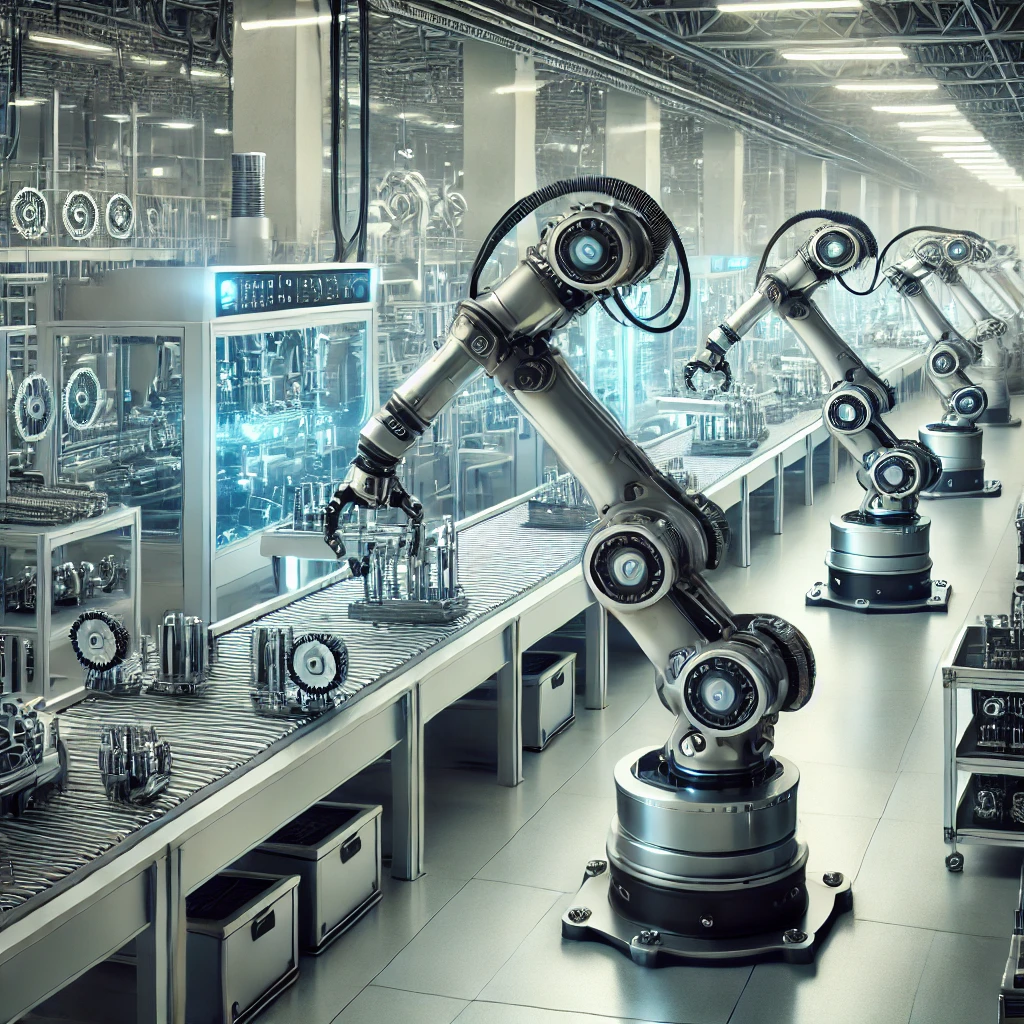As industries evolve, the role of technology in enhancing efficiency and productivity has become paramount. At the forefront of this revolution are advanced manufacturing robots, which are transforming the landscape of production. These sophisticated machines are not only streamlining processes but also redefining the capabilities of manufacturing operations.
In this article, we will explore how advanced manufacturing robots automate complex processes, the benefits they bring, their applications across various industries, the challenges of implementation, and future trends shaping this dynamic field.
Benefits of Automating Complex Processes
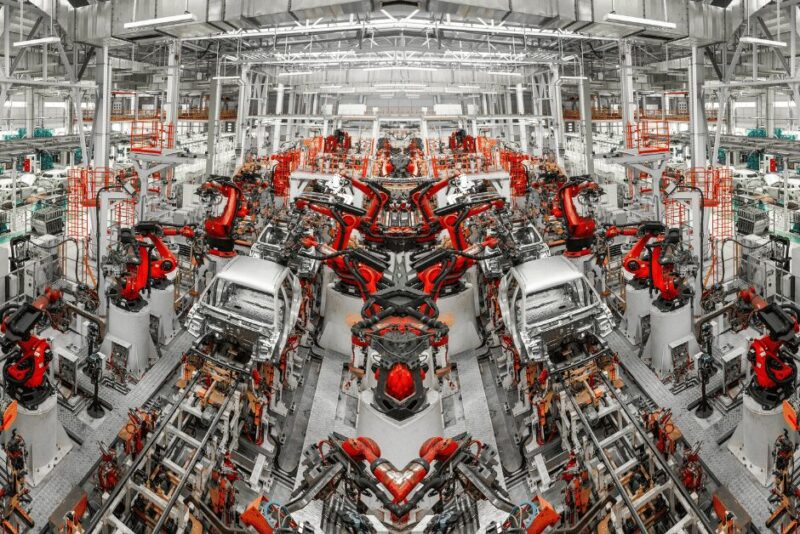
The automation of complex manufacturing processes with advanced robotics offers numerous advantages that can significantly impact a company’s bottom line.
Increased Efficiency and Productivity
One of the most immediate benefits of implementing advanced manufacturing robots is the boost in efficiency. Robots can operate continuously without fatigue, handling tasks faster than human workers. For instance, in an automotive assembly line, robots can complete tasks in seconds that would take humans several minutes, resulting in higher output.
Improved Precision and Quality
Robots excel in tasks requiring high precision. The consistency they provide reduces the likelihood of errors and defects, leading to superior product quality. In electronics manufacturing, for example, robots are used for delicate assembly tasks, ensuring components are placed accurately every time.
Enhanced Flexibility and Scalability
Advanced manufacturing robots can be programmed for various tasks, making them highly adaptable. This flexibility allows manufacturers to adjust production lines quickly in response to changing market demands. As a result, companies can scale their operations up or down efficiently.
Cost Reduction
Although the initial investment in advanced robotics can be substantial, the long-term savings are significant. Reduced labor costs, lower error rates, and improved production efficiency contribute to substantial cost savings over time. Additionally, the ability to maintain consistent quality reduces the costs associated with returns and rework.
Key Applications of Advanced Manufacturing Robots
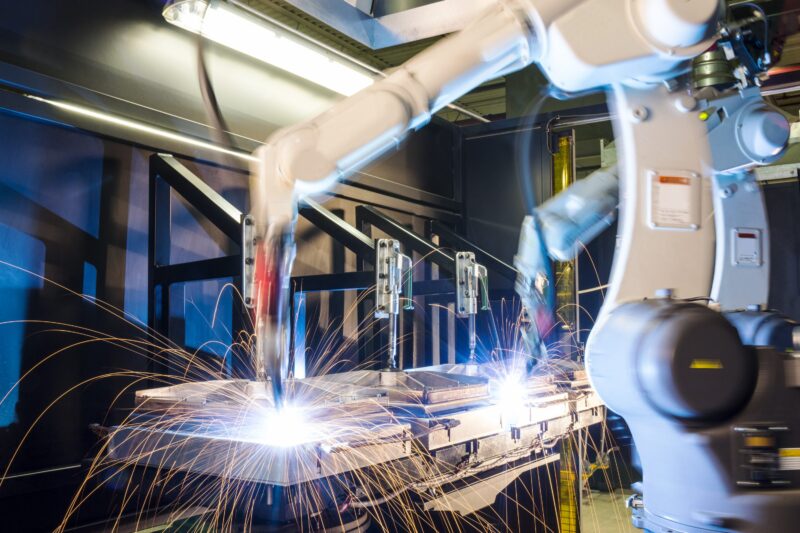
The implementation of advanced manufacturing robots spans several industries, showcasing their versatility and effectiveness.
Automotive Industry
In the automotive sector, robots are integral to assembly lines, handling tasks ranging from welding and painting to installing parts. Their precision ensures that vehicles meet stringent safety and quality standards.
Electronics Manufacturing
Robots play a crucial role in the electronics industry, where precision is paramount. They are employed in tasks like soldering and assembling intricate components, significantly reducing the risk of damage during production.
Food and Beverage Industry
In food processing and packaging, robots automate tasks such as sorting, packaging, and palletizing. This automation not only enhances efficiency but also helps maintain hygiene and safety standards.
Aerospace Manufacturing
Aerospace manufacturing requires the utmost precision and quality control. Advanced robots assist in complex assembly tasks, inspections, and even material handling, ensuring that products meet rigorous safety requirements.
Pharmaceuticals
In the pharmaceutical industry, robots are used for packaging and handling sensitive materials. Their ability to operate in sterile environments helps maintain product integrity while improving operational efficiency.
Challenges in Implementing Advanced Robotics
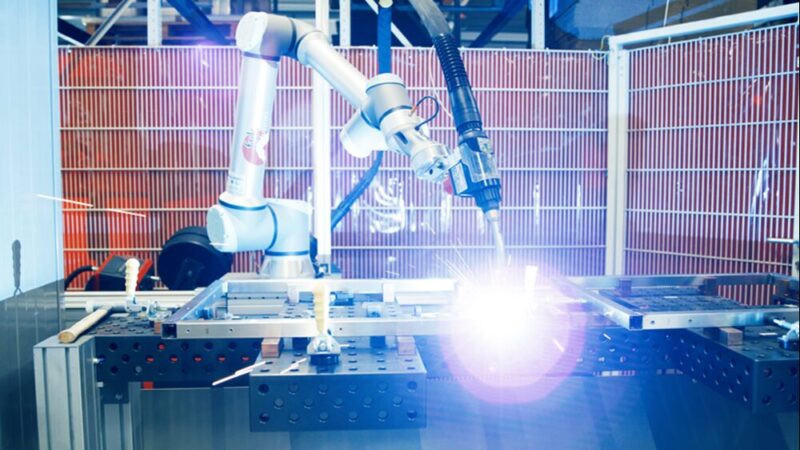
Despite the numerous benefits, the integration of advanced manufacturing robots is not without its challenges.
High Initial Investment Costs
The initial cost of purchasing and implementing advanced robotics can be a barrier for many manufacturers. However, businesses must consider the potential return on investment and long-term savings to make informed decisions.
Integration with Existing Systems
Integrating new robotic systems with legacy equipment can pose technical challenges. Manufacturers must carefully plan and execute integration strategies to ensure seamless operations.
Workforce Transition
As automation increases, there are concerns about job displacement. Manufacturers must invest in upskilling their workforce to work alongside robots, fostering a culture of collaboration between humans and machines.
Technical Limitations and Reliability
While advanced robotics has come a long way, there are still limitations in terms of reliability and technical capabilities. Ensuring regular maintenance and updates is crucial to minimize downtime and maintain efficiency.
Future Trends in Advanced Manufacturing Robotics
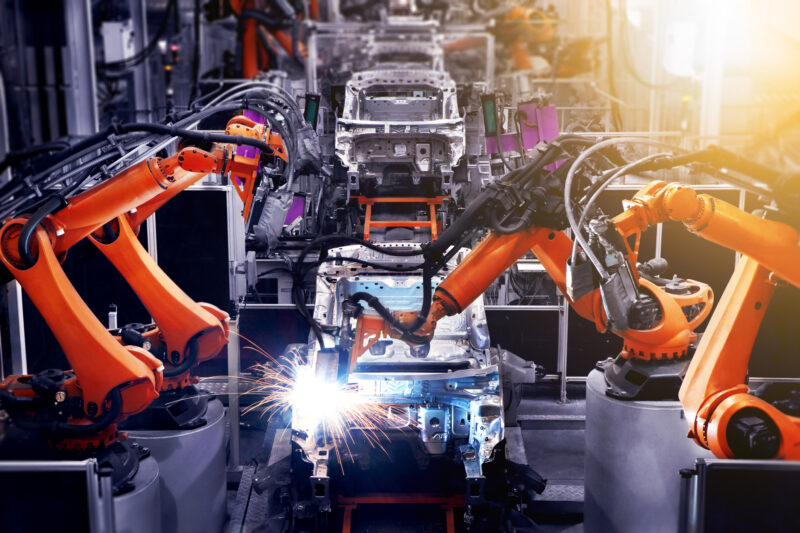
The future of advanced manufacturing robots is bright, with several emerging trends poised to shape the industry.
Development of Smarter Robots
As AI technology continues to evolve, robots will become even smarter, capable of learning and adapting to complex tasks independently. This will enhance their efficiency and effectiveness in various manufacturing environments.
Increasing Collaboration Between Humans and Robots
Collaborative robots (cobots) are gaining traction as manufacturers recognize the value of human-robot collaboration. These robots are designed to work alongside human operators, enhancing productivity while ensuring safety.
Sustainability and Green Manufacturing
With increasing focus on sustainability, advanced manufacturing robots are being designed to minimize waste and energy consumption. These robots can optimize processes to reduce their environmental impact, aligning with corporate social responsibility goals.
Customization and Personalization in Production
As consumer preferences shift towards personalized products, robots will play a key role in enabling customized manufacturing. Advanced robotics can facilitate small-batch production without sacrificing efficiency.
Conclusion
The impact of advanced manufacturing robots on complex processes is profound, driving efficiency, precision, and cost savings across various industries. As technology continues to advance, the potential for automation will only expand, presenting exciting opportunities for manufacturers. As companies consider integrating robotics into their operations, they must be mindful of the challenges and invest in training and support to ensure a smooth transition. The question remains: what effect have robotics had on manufacturing? The answer is clear—robotics are not just enhancing manufacturing processes; they are redefining the future of production itself.

